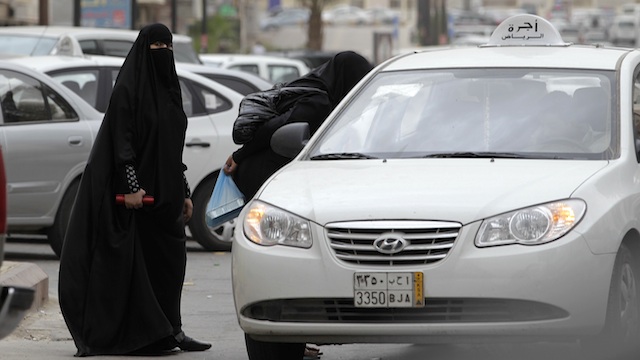If you were born a woman in Saudi Arabia, you would have grown up without the rights to drive a car, travel outside of the country alone, and vote. But as of last month, the conservative society – which operates under strict Sunni Islamic law and an absolute monarchist rule – has opened polls to female voters and is also allowing them to be appointed on the state’s municipal councils. King Abdullah announced the decision after debates and protests had intensified over the role of women. The change is considered a victory for activists who have campaigned for 20 years on the issues of voting, mandated guardianship, and driving.
(AP Photo/Hassan Ammar) via jezebel.comReforms of women’s legal rights have been gradual in the state, achieving small advancements since the King announced his goal to make women more central to the economy ten years ago. Religious conservatives have slowed the process and until now, the changes have been small, like reducing segregation of men and women in public places and official statements to promote greater respect.
Still, voting rights are not an absolute indication of burdgeoning freedoms for women, as only half of all council seats are electable and the most powerful positions are appointed internally. Also, the right to vote will only be granted to women with the permission of a male relative. Meanwhile, reports of driving crackdowns are emerging, leading some to question whether the King’s decree was merely symbolic rather than truly impactful.
The opening of voting rights and council seats to women is expected to have certain impacts on the country’s social and economic affairs, particularly if women gain appointments on the Shura Council, which has the highest influence on the kingdom’s rule. Considering the continuing cases of violence and injustices against Saudi women, the need for stronger female presence and voice in the country’s political realm is just as critical as ever.









